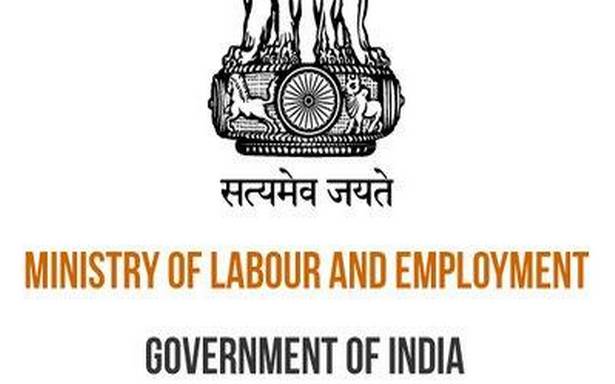Several unions boycott consultations on framing of rules.
The four labour law codes enacted by Parliament in 2020 and 2019 could be implemented before the earlier target of April 1, according to Union Labour and Employment Ministry officials.
The codes, which have amalgamated 29 laws governing minimum wages, occupational safety, social security into four codes, were earlier expected to be implemented by April 1. However, Labour and Employment Secretary Apurva Chandra on January 12 said the rules framed under the codes would be finalised by January-end. Once the rules were notified, the codes would come into effect.
While the rules under the Code on Wages, 2019 have been finalised, those under the Occupational Safety, Health and Working Conditions Code, 2020, the Industrial Relations Code, 2020 and the Social Security Code, 2020 were yet to be notified. Mr. Chandra said the IR Code rules had been finalised, while the occupational safety and social security codes would be finalised within the next 10-12 days. Around 1,200 comments had been received on the draft rules under the occupational safety and social security codes.
On January 12, Labour Minister Santosh Kumar Gangwar held discussions with trade unions and employers’ organisations regarding the occupational safety and social security rules. Ten Central trade unions – the All-India Trade Union Congress, the Indian National Trade Union Congress, the Hind Mazdoor Sabha, the Centre of Indian Trade Unions, the All-India United Trade Union Centre, the Trade Union Coordination Committee, the Self Employed Women’s Association, the All-India Central Council of Trade Unions, the Labour Progressive Federation and the United Trade Union Congress — boycotted the virtual meeting, terming it a “farce” via a joint statement on January 11.
“We have been critical of adoption of labour codes by flouting all Parliamentary norms without discussion in absence of the entire opposition from the Parliament and without tripartite consultations. Instead of taking our objections seriously, the government is trying to create a farce of tripartite consultations by setting up this kind of video conference when we know that the physical meetings of the government at various levels are taking place, including the negotiations with the farmers as well as the election preparation rallies in various states etc,” the statement said.
BMS’ demand
The Bharatiya Mazdoor Sangh (BMS), the union affiliated with the Rashtriya Swayamsevak Sangh, attended the meeting and raised the demand of increasing the limit of earned leave from 240 days to 300 days as per the occupational safety code rules.
In a statement, it said: “This is a great loss for those who have sacrificed their right for leave and worked for their employers…The proposed draft rules did not cover 80% of the provisions in the labour codes passed by the Parliament. Most of the power to make rules have been transferred to State governments whose lack of interest in labour matters is notorious.”
The Confederation of Indian Industry (CII) , which participated in the consultation, sought a clarification on which allowances would be part of wages and submitted its recommendations on the two draft rules, a CII statement said.
CII director general Chandrajit Banerjee said: “The new definitions of wages and factories, stronger safety norms and expanded social security coverage to the gig economy require stakeholders to reorganize and strategise for the smooth implementation of the Codes and shape the employment ecosystem in the country. These reforms will help India improve the ease of doing business, attract investment and lead to massive employment generation.”
Source: Read Full Article

